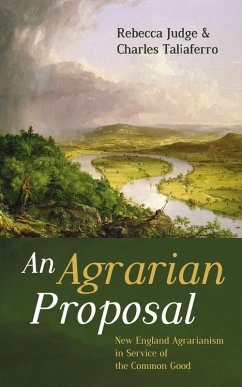An Agrarian Proposal examines how the communitarian perspectives shared among colonial New England's settlers and the farming methods they employed can be adapted to cultivate contemporary agricultural practices, policies, and ethical commitments. Together these promote sustainable farming and land stewardship, even as they valorize farming as a vital locus for cultivating virtue. In contrast to the celebration of libertarian ideals and the general distrust of government regulation characterizing the writings of many prominent modern agrarian writers who follow the tradition of Jefferson and the Southern agrarians, An Agrarian Proposal explores how faith-based commitments shared among colonial New England's settlers resulted in resource distribution and stewardship practices that created a sustainable approach to land and resource management. An Agrarian Proposal adds to contemporary considerations of the ethics and practices of agrarianism by exploring a time and place where regulation was deemed a necessary means of fostering good land stewardship and where a faith-based communitarianism challenged individualism to promote sustainable land practices by individuals farming New England's rocky and isolated fields.
Dieser Download kann aus rechtlichen Gründen nur mit Rechnungsadresse in A, D ausgeliefert werden.









